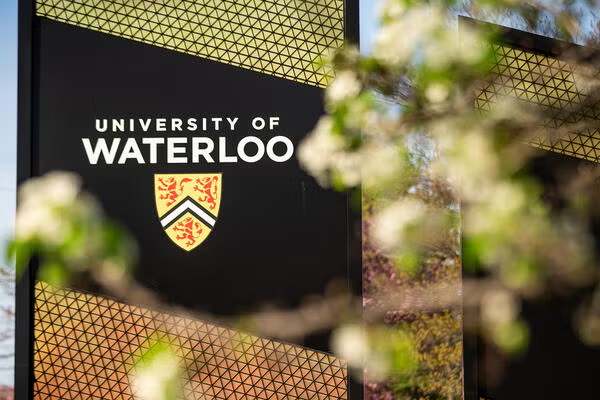NSERC scholarships, fellowships shape the future of Waterloo research
Track record of funding success speaks to University’s research strength
Track record of funding success speaks to University’s research strength
By Staff Marketing and Strategic CommunicationsFrom advanced engineering to developing a deeper understanding of the Arctic, graduate and post-graduate students at the University of Waterloo are critical contributors to research that benefits Canadians.
It’s a competitive field, where top students from institutions across Canada strive to prove that their research deserves to be funded. At Waterloo, postgraduate and postdoctoral students are awarded more funding per capita for that research than at any other institution in Canada.
“The reasons for our success are two fold: It’s the quality of the students we’re attracting and the quality of our faculty,” says Jim Frank, associate provost of Graduate Studies. “It’s also the culture you build up in departments and Faculties that places value on graduate student success and supports graduate students financially, through mentorship, by sharing expertise and with opportunities to build a professional network.” Waterloo’s interdisciplinary approach to research also contributes to that overall success, he says.
In the 2015 Natural Sciences and Engineering Research Council of Canada (NSERC) scholarship competition, Waterloo students from all six Faculties, will receive more than $3.3 million in doctoral-level funding, with close to $1 million supporting master’s level research. Additionally, $480,000 has been awarded to 12 postdoctoral research projects.
This includes 12 postdoctoral fellowships (PDF), valued at $40,000 per year, 16 Canada Graduate Scholarships (CGS) valued at $35,000 per year, and 31 postgraduate scholarships (PGS), valued at $21,000 per year.
Frank says review panels look at several criteria before awarding funding, including the clarity of the proposal, the past success of the student and the value of the research not just to the research community, but to all of Canada.
That’s where Waterloo students really standout. A University-wide culture of connection to community and industry leads to research where the value proposition is a central focus.
“Asking ‘where will this add value?’ drives much of what we do,” Frank says. “It all goes back to that sense of connection.”
Here’s a breakdown of the top three:
As one of Canada’s leading research institutions — and the only member of the U15 without a medical school — University of Waterloo has remained among the top schools for NSERC graduate, postgraduate and postdoctoral funding for more than a decade.

Read more
Here are the people and events behind some of this year’s most compelling Waterloo stories

Read more
Dr. Anita Layton and Dr. Kerstin Dautenhahn complete their C150 terms but their research impacting the future of health and technology continue

Read more
From regenerative medicine, closed-loop health monitoring, Indigenous approaches to architectural design and more, the funding supports future-focused projects
The University of Waterloo acknowledges that much of our work takes place on the traditional territory of the Neutral, Anishinaabeg, and Haudenosaunee peoples. Our main campus is situated on the Haldimand Tract, the land granted to the Six Nations that includes six miles on each side of the Grand River. Our active work toward reconciliation takes place across our campuses through research, learning, teaching, and community building, and is co-ordinated within the Office of Indigenous Relations.